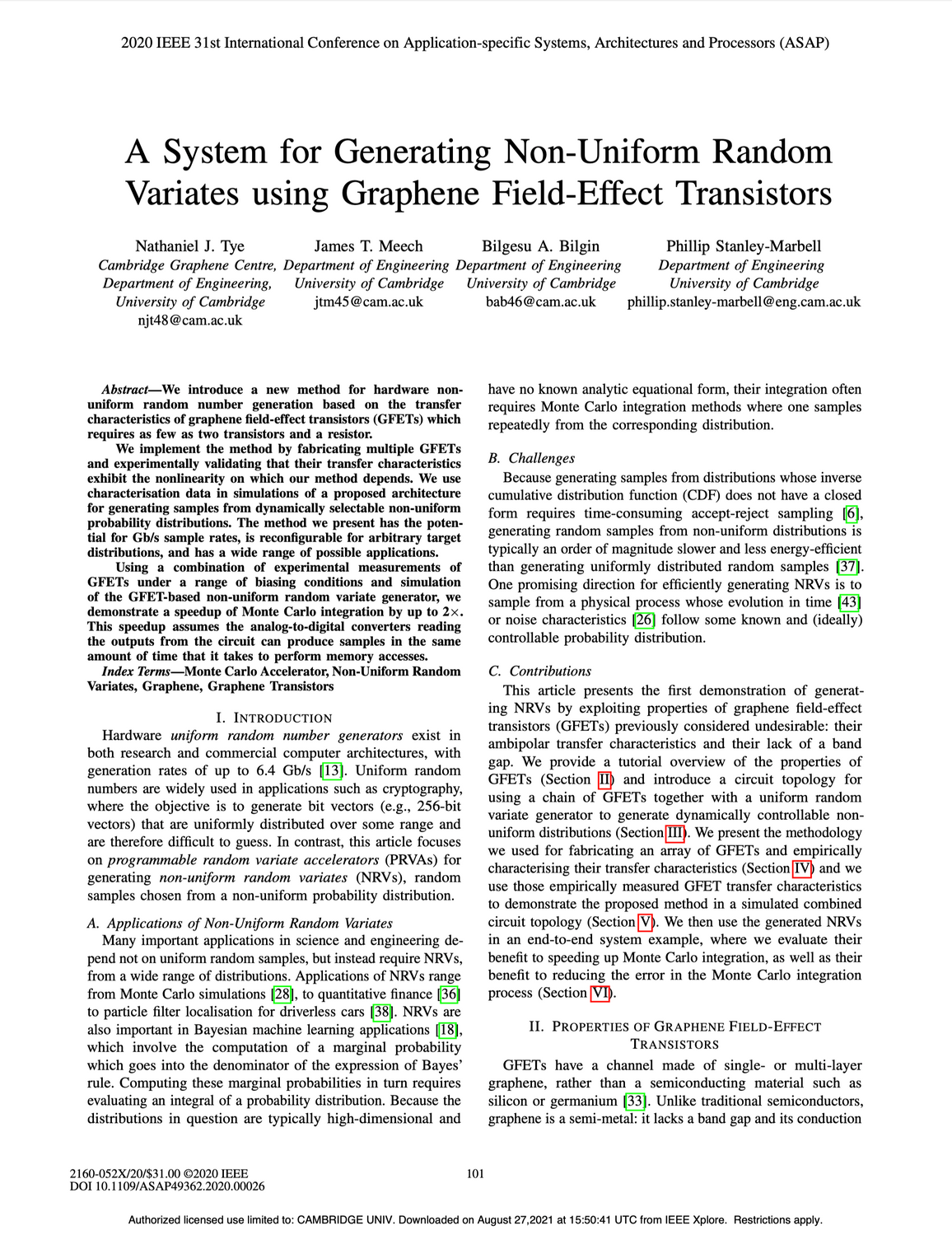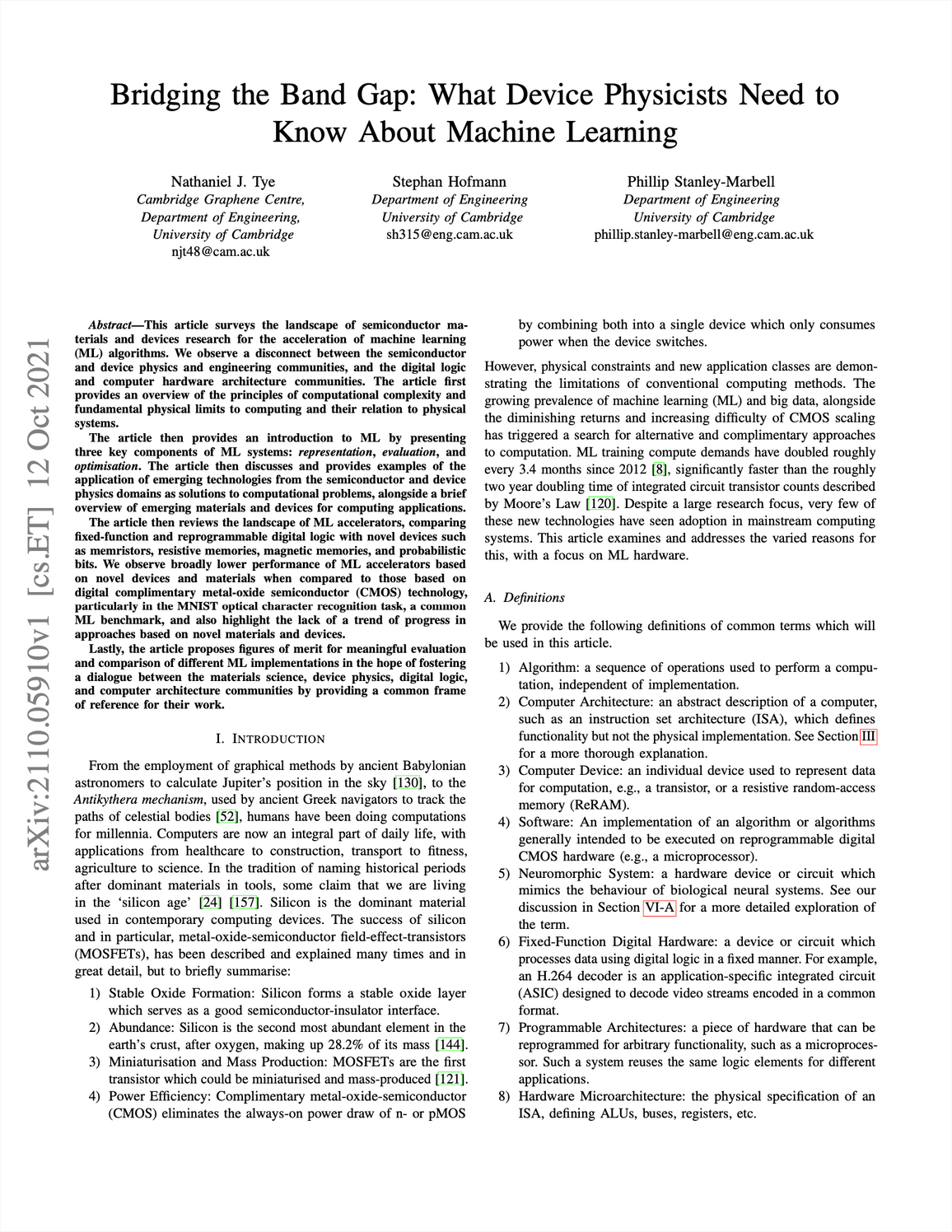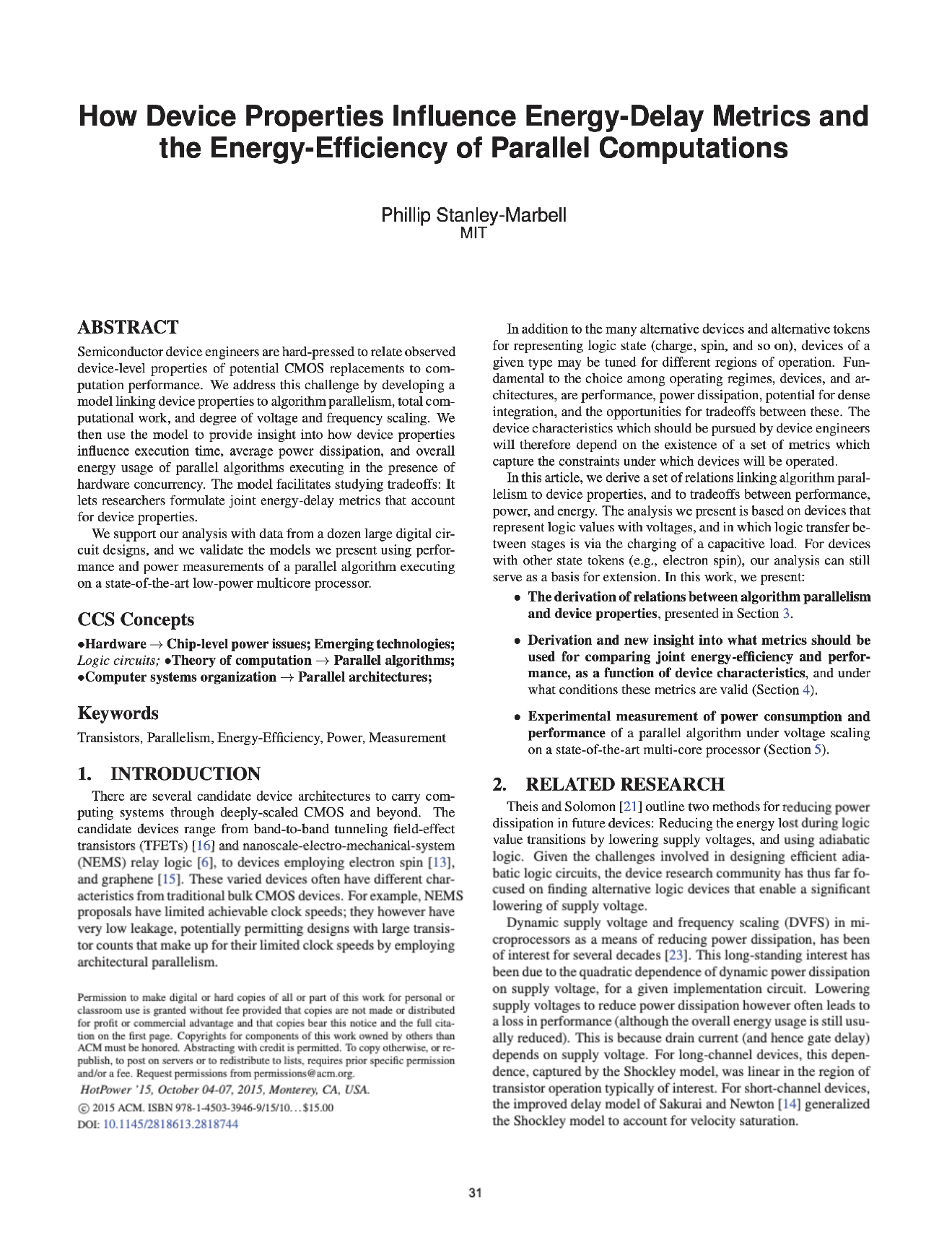A System for Generating Non-Uniform Random Variates Using Graphene Field-Effect Transistors



Abstract
We introduce a new method for hardware non-uniform random number generation based on the transfer characteristics of graphene field-effect transistors (GFETs) which requires as few as two transistors and a resistor. We implement the method by fabricating multiple GFETs and experimentally validating that their transfer characteristics exhibit the non-linearity on which our method depends. We use characterisation data in simulations of a proposed architecture for generating samples from dynamically selectable non-uniform probability distributions. The method we present has the potential for Gb/s sample rates, is reconfigurable for arbitrary target distributions, and has a wide range of possible applications. Using a combination of experimental measurements of GFETs under a range of biasing conditions and simulation of the GFET-based non-uniform random variate generator, we demonstrate a speedup of Monte Carlo integration by up to 2x. This speedup assumes the analog-to-digital converters reading the outputs from the circuit can produce samples in the same amount of time that it takes to perform memory accesses.
Cite as:
Nathaniel J. Tye, James T. Meech, Bilgesu A. Bilgin and Phillip Stanley-Marbell, "A System for Generating Non-Uniform Random Variates using Graphene Field-Effect Transistors," 2020 IEEE 31st International Conference on Application-specific Systems, Architectures and Processors (ASAP), Jul. 2020, pp. 101-108, doi.org/10.1109/ASAP49362.2020.00026
BibTeX:
@INPROCEEDINGS{9153243,
author={Tye, Nathaniel J. and Meech, James T. and Bilgin, Bilgesu A. and Stanley-Marbell, Phillip},
booktitle={2020 IEEE 31st International Conference on Application-specific Systems, Architectures and Processors (ASAP)},
title={A System for Generating Non-Uniform Random Variates using Graphene Field-Effect Transistors},
year={2020},
pages={101-108},
doi={10.1109/ASAP49362.2020.00026}
}




